|
April 1607
|
|
|
The Midland Revolt.
Uprisings break out in the Midlands of England in protest against the enclosure of common land by wealthy landowners. The practice of enclosures involved rich landowners seizing land belonging to the community and turning it into their private property, all with government approval. The protests by poor farmers deprived of their livelihoods are violently put down; some 40 or 50 people are killed, and the leaders of the revolt are executed.
|
|
April 1, 1649
|
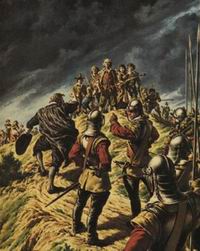
|
A group of labourers gather on George’s Hill just outside London and begin to dig up the earth. The group, known as “True Levellers” or “Diggers”, intends to plant crops to assert, both practically and symbolically, common ownership of common land. Digger Gerrard Winstanley says “The earth should be a common treasury of livelihood to whole mankind, without respect of persons”.
Landowners and the state, alarmed at this menacing threat to the sacred principle of private property, respond with raids and armed violence, and by 1650 the colony is destroyed.
The Diggers state their vision in The True Levellers Standard Advanced:
“The work we are going about is this, To dig up Georges Hill and the waste Ground thereabouts, and to Sow Corn, and to eat our bread together by the sweat of our brows. And the First Reason is this, That we may work in righteousness, and lay the Foundation of making the Earth a Common Treasury for All, both Rich and Poor, That every one that is born in the Land, may be fed by the Earth his Mother that brought him forth, according to the Reason that rules in the Creation. Not Inclosing any part into any particular hand, but all as one man, working together, and feeding together as Sons of one Father, members of one Family; not one Lording over another, but all looking upon each other, as equals in the Creation.”
|
|
April 1, 1820
|
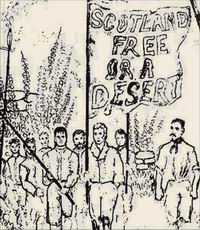
|
|
Start of the Scottish Insurrection of 1820 or ‘Radical War’, a week of strikes and protests.
|
|
April 1, 1841
|
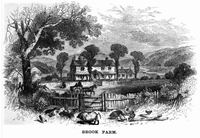
|
|
Brook Farm, a utopian community, is founded in Massachusetts.
|
|
April 1916
|
|
|
Publication of Either/Or, by Rosa Luxemburg.
|
|
April 1, 1918
|
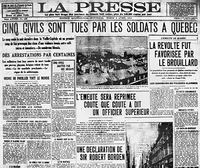
|
|
Anti-conscription protests in Quebec are put down by troops who fire on the crowd, killing four and wounding 70.
|
|
April 1922 - November 1923
|
|
|
American forces land in China five times to ‘protect American interests.’.
|
|
April 1, 1929
|
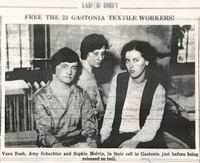
|
|
Start of the Loray Mill strike, a strike in North Carolina. Faced with police repression, the strikers are largely unsuccessful in attaining their goals, but their courage and solidarity provide an important impetus to the national development of the labour movement in the United States.
|
|
April 1937
|
|
|
Garment workers led by Lea Roback strike in Montreal.
|
|
April 1940
|
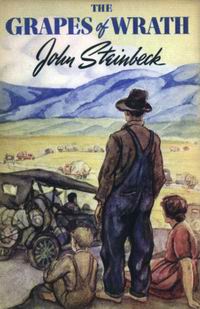
|
|
Publication of John Steinbeck’s novel The Grapes of Wrath, which tells the story of impoverished tenant farmers driven from their home in Oklahoma and forced to travel across the country in search of work and land. The novel becomes a best-seller, even as it is attacked by people on the right as “communist propaganda” and “a pack of lies.”
|
|
April 1, 1940
|

|
|
Birth of Wangari Maathai (1940-2011), Kenyan environmentalist and political activist, winner of the Nobel Peace Prize.
|

